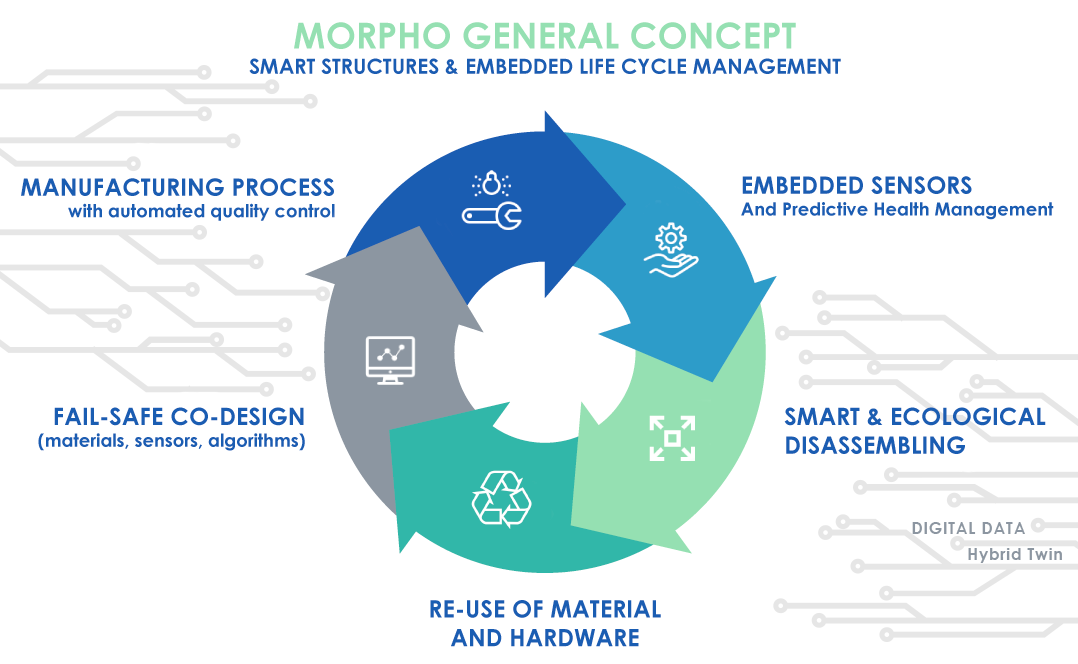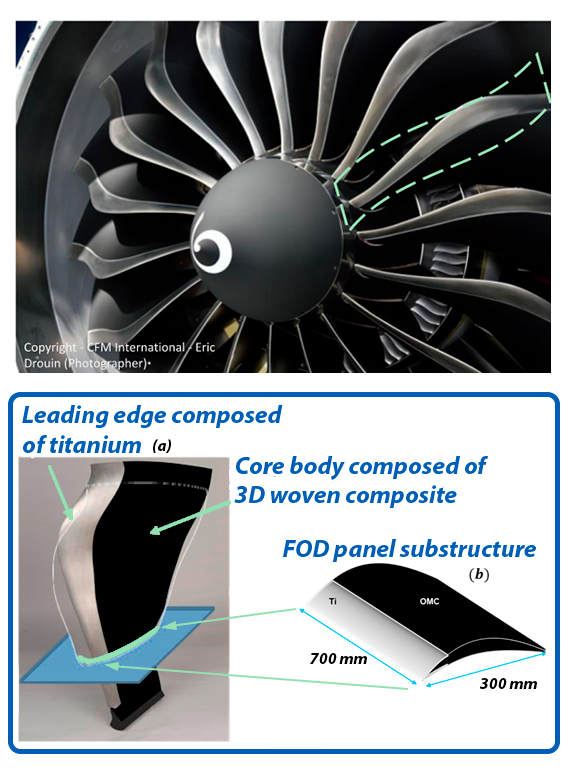MORPHO is an industrial research project, financed by the Horizon 2020 programme with a budget of €5 million, whose ambition is to accompany the development of smart aeronautical parts namely engine fan blades, to endow them with cognitive capabilities, and to optimise their manufacturing and their life cycle management.
MORPHO "Manufacturing, Overhaul, Repair for Prognosis Health Overreach" aims to, design, develop, test and validate an innovative, robust, and environmentally friendly industrial process to manufacture, monitor, and recycle a new generation of intelligent, multifunctional, multi-material parts such as engine fan blades. This process will rely on embedded sensors, data-driven hybrid twins, and machine learning algorithms to track the entire life cycle of the targeted aeronautical parts in real-time.
The final goal of MORPHO is to contribute to developing standards that will enable a reliable, sustainable, agile, and cost-competitive industrialization of smart structures for aeronautics.

The fan blades are designed and manufactured using a hybrid material. The core body of the fan blades is built up with a 3D-woven composite, while the leading edge is made of titanium. As an example, this material technology is used in the LEAP® Engine family (1A, 1B, 1C), allowing them a mass gain while exhibiting high strength and fracture toughness.
MORPHO will deal on developing and testing technological bricks on a demonstrator named Foreign Object Damage (FOD) panel. It is representative of the chord of a fan blade at a specific height. It is mainly used to test the design a fan blade before launching its manufacturing to ovoid and manage any risk. In that sense, MORPHO will rely on the same strategy.
MORPHO proposes to embed printed and fiber-optical sensors in FOD panels, thus providing them with cognitive capabilities from the moment they are manufactured. The parallel development of digital/hybrid twin models will drastically improve the FOD Life Cycle Management. Throughout the project, demonstrators will be developed to analyse and validate the proposed methods and tools.
